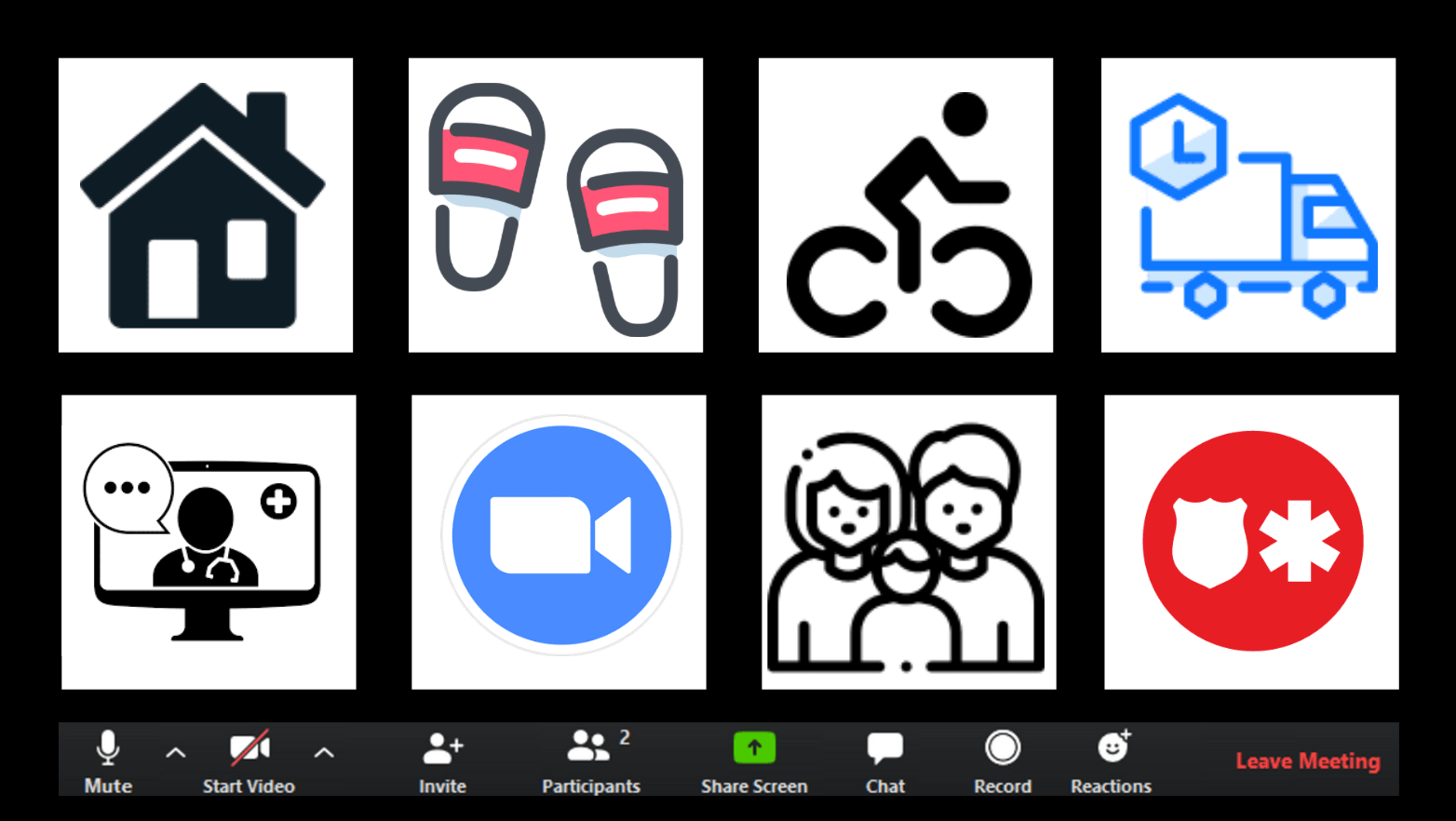
Thanksgiving is a time when we traditionally reflect on our blessings. In a year as extraordinarily difficult as 2020 has been, such reflection can help provide a needed sense of forward momentum.
With Thanksgiving celebrations limited to very small gatherings, this year’s holiday presents yet another unwelcome change. Of any in our memory, this year would have been one to share thanks with far-flung family members and dear friends.
Nonetheless, we do have a lot to be thankful for.
Consider how far we have progressed from our natural comfort zones. As we shared in a post back in April,
As Americans, we have adapted — solving problems with creativity, welcoming unconventional approaches, mastering new skills, applying focus and discipline.
This Thanksgiving, let’s celebrate these silver linings.
1. Massive growth in technology skills
Necessity, it has been said, is the mother of invention. The pandemic and lockdown have shown that necessity also is the mother of adapting and adoption. Only two months in to the pandemic, a gigantic leapfrog in technology skills was evident:
Whether for conducting business, securing household supplies or socializing from a distance, digital tools have taken center stage in our daily lives.
The growth of technology understanding and internet savvy is truly remarkable. Utilization of video chat tools including Zoom, FaceTime and Skype has skyrocketed, providing real-time opportunity to see and interact with friends and family.
With limited access to stores and restaurants, Americans turned to home delivery of groceries and prepared meals. In the first half of March alone, before the pandemic’s effects were demonstrated in many areas of the country, Instacart showed a 200% increase in app downloads. Delivery drivers brought everything from produce to printer cartridges, take-out dinners to desk chairs for furnishing new home offices and remote schoolrooms.
Telemedicine truly became a viable and nimble alternative, reducing potential exposure and spread of the virus while also expediting appointments, saving fuel and improving timeliness. Another unexpected benefit was improved eye contact, as physicians looked in the camera at patients, rather than down at a laptop to type notes for electronic health records.
2. Casual Fridays (and all days)
Comfortable duds for working from home replaced business attire. Even in online meetings, casual clothing was the norm. As months passed without access to barbers and hair stylists, we sheepishly shared gray roots, outgrown cuts and poorly executed DIY haircare.
The silver lining? Stripped of pretenses, the arms-length formality of business relationships was reduced, and we became more emotionally connected with coworkers.
3. Home-cooked meals
With no access to restaurant dining initially, and anxiety about handling takeout meals, we stepped it up in the kitchen. We had time to kill and mouths to feed, three meals per day. Home-cooked meals stretched our creativity and provided a distraction.
Meatless Mondays actually happened as the virus hit meat packing plants. We explored new recipes when chicken was out of stock yet again as distribution systems struggled to keep up. A planned Tex-Mex dinner got a Thai twist when basil was substituted for cilantro by our online grocery delivery shopper.
And we ate our meals and were thankful for them.
4. Fresh air and exercise
We spent substantially more time outside — bicycling, running, taking walks or hiking. Bicycles and helmets were out of stock as new sales skyrocketed. Fresh air helped our mental health; physical exercise provided stress relief and an alternative to in-person gym classes, which were unavailable.
Cities and counties modified regulations to help restaurants survive, restricting automobile traffic and converting streets and sidewalks to extended patios for outdoor dining. Appreciative patrons dined al fresco in the street or tents in parking lots.
5. Family time/connectedness
While 24/7 togetherness was challenging, simultaneously it helped us manage the isolation from friends, work colleagues and the absence of routines. We learned to put aside small irritations and appreciate the support of housemates.
Parents gained insight into their children’s academics as they navigated remote learning and limited consequences for poor performance. Extremely challenging for working parents, but an important silver lining.
Families added to their tribes; dog adoption/rescue rates soared and romantic relationships progressed from dating, to living together, to engagements.
Yet to be determined? 2021 birth rates.
6. First responders — of all kinds
When the initial news of the virus was breaking, and infection and hospitalization rates were soaring, we universally expressed profound appreciation for doctors, nurses and medical support personnel on the front lines. With inspiring stories in the news, we recognized and publicly acknowledged the risks being taken by police officers and firefighters, delivery drivers and grocery shoppers, customer-facing store employees and teachers to help our citizens and our country to survive.
Reminiscent of scenes from an old movie, Americans stood at intersections with homemade thank you signs, placed Heroes Work Here! flags at healthcare facility entrances and offered enthusiastic and appreciative waves to drivers and home delivery warriors who took the risks for us and delivered — literally.
We learned not to expect, and to express our appreciation.
7. Home is where the heart is
As we spent more time at home, we both appreciated its assets and devoted time to reinvent it to meet new, evolving needs. Purging projects gave us purpose and home improvements provided practical spaces to work, school and (hopefully) decompress.
As we shared in a blog post early in the spring,
Spring cleaning quarantine-style has taken center stage. From a practical perspective, decluttering the space previously-known-as-home can alleviate the feeling of walls closing in on us, crowded with family 24/7. Creating a clean and airy environment also provides a sense of control and forward-motion to preserve our mental health. And finally, minimalist, orderly spaces reduce anxiety resulting from overstimulation.
8. Ingenuity
From the earliest days of the virus, inspiring stories gave us hope. From manufacturing pivots to produce PPE and keep employees on the payroll, to pay-it-forward meal initiatives to feed hospital workers and help restaurants stay afloat, to a shuttered brewery reopening as a hand sanitizer facility — America rose as a nation to show our determination and ingenuity.
In March, a comprehensive economic stimulus bill was introduced and signed into law. The CARES Act provided grants to individuals to replace lost income, and forgivable loans to American businesses, to help retain employees. Essentially flying a plane while building, the execution had hiccups, but it kept food on our tables and our economy moving forward.
We were thankful.
9. Simple human kindness
Stories of spontaneous acts of kindness restored our faith in humanity.
A birthday parade, complete with fire engines, for a young child.
The nursing home that hired the wife of a dementia patient as a custodian, so she could spend time with him each day, after her shift.
Grocery shopping and homemade meals prepared for elderly neighbors and left – contactless — on their doorstep.
Organizations and companies providing free access to resources and online tools to help families stay connected.
Inspirational messages painted (for free) on exterior windows of
downtown storefronts
Daily meals donated to healthcare workers on the line, funded privately to help local restaurants stay afloat.
As we celebrate an unusual Thanksgiving this week, let’s pause and give thanks for the silver linings of the past nine months.



Thank you for the reminders of the positive. This year has been so difficult, but it is important to acknowledge the growth we have achieved- both as businesses and as Americans.
Absolutely agree, Barry. Thanks for your comment.
So much to be grateful for. I’m so glad we’re connected Nancy. Beautifully put! Take good care my friend.
I appreciate your warm words, Rosi. Thank you! A healthy and happy Thanksgiving to you and your family!
Just lovely, Nancy! So many things for which we can be grateful.
There are times we just need a reminder.
Your best blog ever! Beautifully written and researched. Happy Thanksgiving. Blessings, Gail
I appreciate your comment, Gail. Wishing you a Happy Thanksgiving as well, Gail.